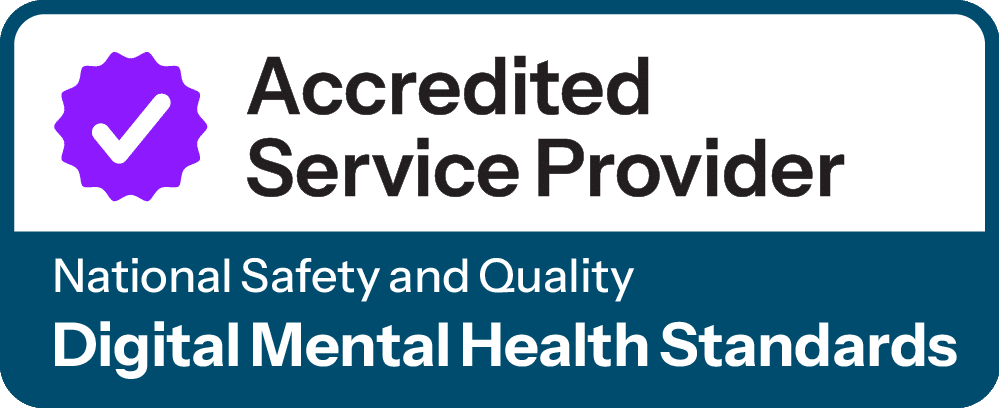
Abstinence vs moderation: What’s best for you?
If you’re thinking about changing your relationship with alcohol, one of the first decisions you will make is whether you want to cut back or quit altogether.
In Australia, alcohol is involved in so many aspects of everyday life that for some people, the thought of never having a drink again is so daunting that they end up making no change at all. For others, having alcohol only in particular situations of their choice, feels doable.
So how do you decide what’s best for you?
Understanding moderation vs abstinence
Drinking in moderation means you still enjoy a drink, but avoid the harms to health, relationships and wellbeing that potentially come with heavy or risky drinking. On the other hand, abstinence involves not drinking alcohol at all. For some people it’s an easy decision but for others, weighing up the gains and losses of each option can help.
In deciding what’s right for you, consider the following issues. A self-assessment may help too.
Personal history: Think about the role alcohol has had in your life. What’s led to your current concerns with drinking? Are you drinking more often or in larger amounts but still able to control your drinking for the most part? Is moderation something you’d consider, or would you like to stop completely? Have you had severe consequences from drinking such as blackouts or memory loss, physical injuries, social conflicts, or believe you are dependent? If so, you might consider at least a period of abstinence, like 6-12 months, and then reconsider your relationship with alcohol from a different standpoint.
Health: Assess the impact of alcohol on your physical and mental health. Consider any existing health conditions, medications, or family history of alcohol-related problems that may influence your decision. If you suffer from severe physical effects from alcohol like poor liver function or heart disease, you might consider at least a period of abstinence. Consult with a health professional for personalised advice and guidance.
Social and family life: What’s the role of alcohol in your social and private life? Do you feel pressure from your social group to drink? Do you drink more or less than other people in your circle? Do social situations influence your drinking patterns, or is your social and or family life influenced by your drinking? The answers may help you decide if abstinence or moderation is the better option for you.
Goals and values: What do you value? What are your priorities in life? What are you trying to achieve? How does alcohol fit in with these things? Considering the potential benefits and drawbacks of both moderation and abstinence in relation to your values and goals may help you make a decision.
Motivation: Start according to your level of motivation, because we only change what we’re motivated to change. Even if you think you should quit, if that’s going to be hard, it’s better to try to cut back or take a short break first. Motivation is influenced by the benefits you see of reaching the desired goal and the disadvantages you see of taking steps to get there. For example, if you’d like to quit drinking but think that will ruin a social life that’s important to you, you might choose to only drink when you go out and set a limit for yourself on those days. Motivation waxes and wanes, so check in with yourself regularly.
How to choose
Take time to reflect: Give yourself space and time to reflect on your relationship with alcohol and the personal factors you’ve considered that influence your decision. Journaling, meditating, or discussing your thoughts and feelings with a trusted friend or health professional can help clarify your thoughts and emotions.
Seek support: Hop into Daybreak and learn from other’s experiences. Reach out to people you know will be supportive and who can offer guidance, encouragement, and understanding as you navigate this decision.
Experiment and adapt: Be open to experimenting with different approaches to changing your relationship with alcohol and adjusting your strategy based on your experiences and feedback. Allow yourself the flexibility to change course if your needs, preferences, or circumstances evolve over time.
Practice self-compassion: Be kind and compassionate towards yourself as you explore your options and make decisions about drinking alcohol. Recognise that change is a process that might not go smoothly the whole way.
There is no wrong answer, no one-size-fits-all when it comes to cutting down or quitting. What works for one person is not the same as what works for another. But it’s also not an all or nothing thing. There are lots of options and lots of different supports out there. If at first you don’t succeed, try again with a different approach.
Remember that any break or reduction in drinking is healthy for your body, even if it’s not forever.
Let us know how you go. We are here to help you change your relationship with alcohol and meet your personal goals, whether that is taking a break, cutting back or quitting.
The Hello Sunday Morning Team










That’s just what I needed to read. I do enjoy a drink but I have found myself drinking almost daily I definitely need to cut back. So my aim is no alcohol Mon-Fri. Sat after work and Sun afternoon will be my allocated drink days.
I have had a troubled relationship with drinking.
As a woman born in 1960 women’s drinking wasn’t as common or acceptable as it is now.
In the past 20 years my drinking has increased in direct proportion with social catch ups with female friends being focused around having a drink.As someone who now understands that I have social anxiety, being social and drinking has meant excess, days list to recovering from a “big “ night and feelings of remorse and shame.
I have been abstinent for 16 days.
Not cracking open the Chardonnay when I cook dinner and the one , two , three glasses is a toughy.
Not drinking when out with friends challenging.
I haven’t felt any physical changes.
I’m eating more.
Psychologically I’m feeling boosted by my resolve and commitment.
Early days.
Abstinence or moderation.
It’s going to take some time to find out.
I have had a troubled relationship with drinking.
As a woman born in 1960 women’s drinking wasn’t as common or acceptable as it is now.
In the past 20 years my drinking has increased in direct proportion with social catch ups with female friends being focused around having a drink.As someone who now understands that I have social anxiety, being social and drinking has meant excess with days lost to recovering from a “big “ night and feelings of remorse and shame.
I have been abstinent for 16 days.
Not cracking open the Chardonnay when I cook dinner and the one , two , three glasses is a toughy.
Not drinking when out with friends challenging.
I haven’t felt any physical changes.
I’m eating more.
Psychologically I’m feeling boosted by my resolve and commitment.
Early days.
Abstinence or moderation.
It’s going to take some time to find out.
I would be interested to hear from people who have successfully combined periods of genuine moderation with prolonged periodic abstinence. What approach was taken to the moderation and how did they oscillate between the two?
Well said. I appreciate the gradual approach you take. It inspires me that your site is a genuine helpful place.
I have tried both. I have been abstinent for a while and was on a cruise recently and was surrounded by excessive consumption in all directions. I caved and had a few. I was in control. After the holiday, I continued with no drinking at all. I went to a wedding last weekend, however, and got completely black-out drunk. The slope is slippery for me. Back to abstinence, AGAIN. No alcohol at all is the only road for me, at least, at this present time.
Thanks for being here. I am looking for more support and the attitude of HSM, is just the right balance of smart choices and support without being pushy about what only YOU can decide about your life.
Thank you for existing. I feel like I have little support and it is helpful to hear these thoughts. I appreciate this very much.
I learned that while I went for periods of total abstinence (2 months, 6 months) I always went back to heavy drinking and not moderation. It was a professional that pointed out that it showed me total abstinence for life was my only way as I was and still am an alcoholic. Not alcohol for 3 years and replaced my booze money with gym membership. 🙂